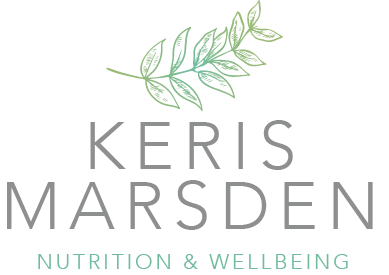Is your digestion healthy?
As you gut is often making weird and wonderful noises or doing unpredictable things it can be tricky to know what’s healthy and what could indicate your digestive system isn’t happy.
It’s helpful to know a few things to look out for as signs you gut is in need of some support.
Getting to know your gut
Your digestive tract is a muscular tube that runs from your mouth to the end of your colon.
It needs to be able to make secretions like acid and enzymes to breakdown food and then move it along from one organ to the next, starting with the stomach, then into the small intestine and finally into the large intestine.
During this time nutrients are absorbed into the body and waste materials are collected together in the bowel to create a stool.
Digestive processes are activated and driven by nerve supply and muscular contractions, a process known as peristalsis moves the food through the intestines.
The gut is also provides immune support in the form of a protective barrier as the cells that line the digestive tract are highly selective and only allow certain substances to pass into the blood stream.
As the gut is the outside world inside your body, it’s also home to a vast community of organisms that communicate with your immune cells and help defend against the invasion of any pathogens.
The lining of the digestive tract can easily become damaged by infections, inflammtion, food allergies, medications and even stress.
Substances in the gut can then escape into the body disrupting immune function and triggering inflammatory processes. This is called increased intestinal permeability, or leaky gut.
Signs your gut needs some attention
There are several signs and symptoms that can arise when something has altered your gut function. Below are some of the more common ones:
Bloating
Diarrhoea
Excessive flatulence and burping (usually accompanied by other symptoms)
Constipation
Indigestion
Heartburn or acid reflux
Abdominal discomfort
Undigested food in stools
Allergies
Autoimmune diseases such as eczema, asthma, rheumatoid arthritis and psoriasis
It’s important to discuss any ongoing symptoms with your GP and the following require immediate medical support:
Pain – any pain which is persistent, particularly if severe in the abdomen
Bleeding – blood in sputum, vomit, urine or stool, black, tarry stools (unless you’ve been eating beetroot
Vomit containing what look like ‘coffee grounds’, or charcoal
Persistent symptoms – vomiting and or diarrhoea
Changes in – bowel habits
What is a healthy bowel movement?
A useful aide when understanding healthy bowel movements is the Bristol stool chart. This provides some guidelines as to the health status of the digestive tract:
If we take a look at the chart above, the following factors may apply:
Stool type 1
This is a sign that you may be dehydrated and you diet is lacking fibre intake.
Stools will be hard and dry in consistency and difficult to pass. You many find that you are constipated which is defined as not having passed a stool more than 3 times in the week.
Other symptoms may be haemorrhoids, abdominal pain, bloating and feelings of nausea. Studies also show a link between constipation, fatigue, mood disorders and headaches.
Stool type 2 and 3
The consistency of the stool begins to improve which would indicate improved levels of hydration and fibre.
Stool types 3 and 4
These are considered generally typical and healthy stool forms.
Other signs of a healthy stool are:
1. Regular bowel movements - at least once a day
2. Passing a stool without needing to strain and without pain
3. Completely emptying your bowels
Stool types 5, 6 and 7
These become increasingly loose and are an indication of diarrhoea which can also be a sign that the food passing through the digestive system is doing so too quickly. O
Other symptoms may be fatigue, stress, bloating, flatulence, smelly wind, stress and anxiety.
What about wind and bloating?
While some wind and bloating is natural, especially after eating, it’s helpful to pay attention to chronic symptoms.
With every meal your stomach may distend slightly due to the gases produced during digestion.
If this becomes excessive and you begin to feel uncomfortable or experience any pain it’s helpful to seek advice as it could be a sign of a food intolerance, Irritable Bowel Syndrome, SIBO (small intestinal bacterial overgrowth), chronic constipation or other digestive issues.
Similarly, with wind it’s common to pass wind around 15 times a day but this can also depend on your diet and meal frequency.
It may be up to 30-40 times daily and simply because you eat plenty of fruit, vegetables and wholegrains.
If your wind is particularly pungent or accompanied by other symptoms such as bloating, pain, reflux, headaches and abdominal discomfort it could be a sign of bacterial imbalances or food not being digested efficiently.
In this case it’s important to seek some professional advice.
If you think your gut maybe in need of some support you can book a a free 15 minute consultation call.


